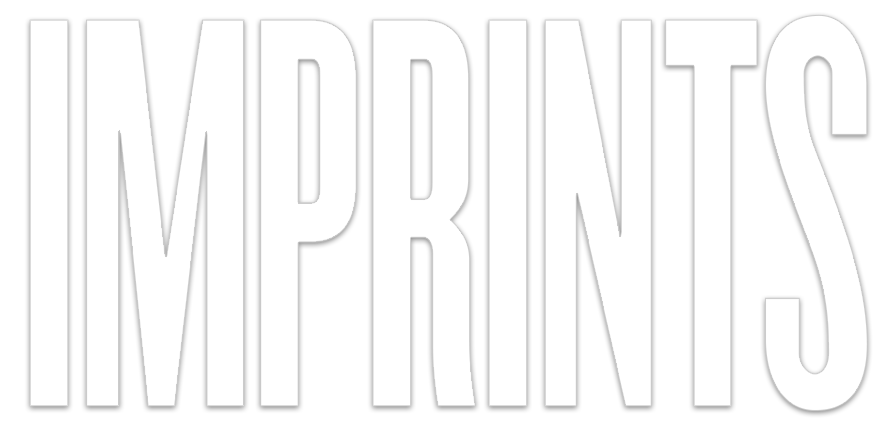Daughters pay tribute to their dad by helping advance research in the field he loved
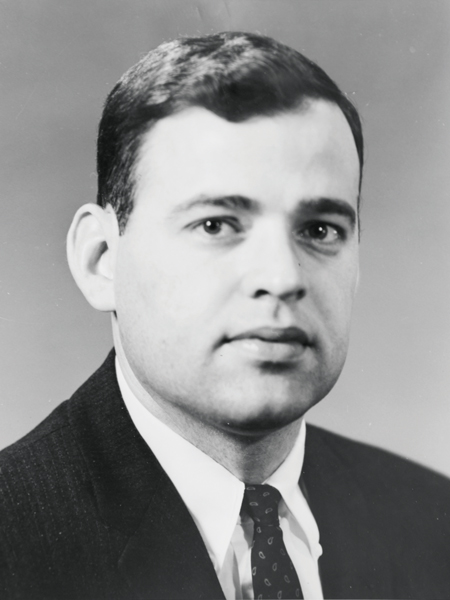
As a professor of mechanical engineering at Purdue for 27 years, and co-author of the seminal textbook “Fundamentals of Heat and Mass Transfer,” the late David DeWitt (PhD ME ’63) shaped the experiences of generations of students. But it was his impact on the three women who knew him simply as “Dad” that led to the creation of the Professor David P. DeWitt Heat Transfer Research Endowment for the School of Mechanical Engineering.
“Growing up, I knew what an amazing professor and researcher he was, but to me he was just my dad,” says Karen DeWitt Frederick (BS IM ’82). “I can remember him often working in the basement after dinner. When I went to talk to him, he put down his pencil and gave me his full attention. His work was important, but his family was more so.”
Today, that family is making sure DeWitt’s legacy lives on. The endowment established by Karen and her husband, Bill Frederick (BSIE ’82) — with support from her sisters Amy DeWitt Bifano (BS HHS ’85) and Debbie DeWitt Foley (BS HHS ’89) — will forever link DeWitt’s name to Purdue research advances in the area of heat transfer.
“From the stories I’ve heard of Professor DeWitt, he was an outstanding researcher, instructor and mentor,” says Mung Chiang, the John A. Edwardson Dean of the College of Engineering. “That formula enabled him to take a giant leap in the way we teach heat and mass transfer to students on a global scale.”
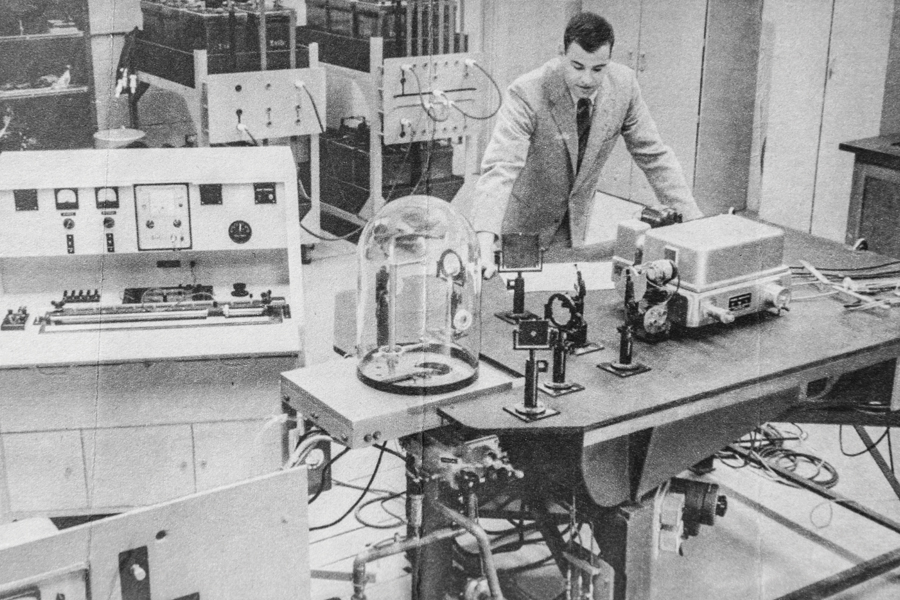
High expectations at home and on the job
As kids, the “Daughters Three” — David DeWitt’s nickname for Karen, Amy and Debbie — didn’t have an in-depth understanding of their father’s research. But they knew he was very committed to his work and set a high bar for himself, his colleagues, his students and his family.
“He really enjoyed teaching, and he expected the best effort from his students,” Karen says. “He had high expectations for us at home, too.”
For Amy, it was chance encounters with mechanical engineering majors when she was a student at Purdue that opened her eyes to her father’s influence.
“I wouldn’t tell them who I was, but I would ask if they knew Professor DeWitt,” she says. “They always said he was tough, fair, demanded the best and genuinely wanted them to succeed. That’s how I knew my dad was passionate about what he did.”
Mentoring graduate students was a special focus for DeWitt, a Pennsylvania native who earned bachelor’s, master’s and doctoral degrees from Duke University, MIT and Purdue, respectively.
“Dave was all about research and relationships with his students and other faculty,” Bill says. “This endowment is a way we can help perpetuate the work he loved.”
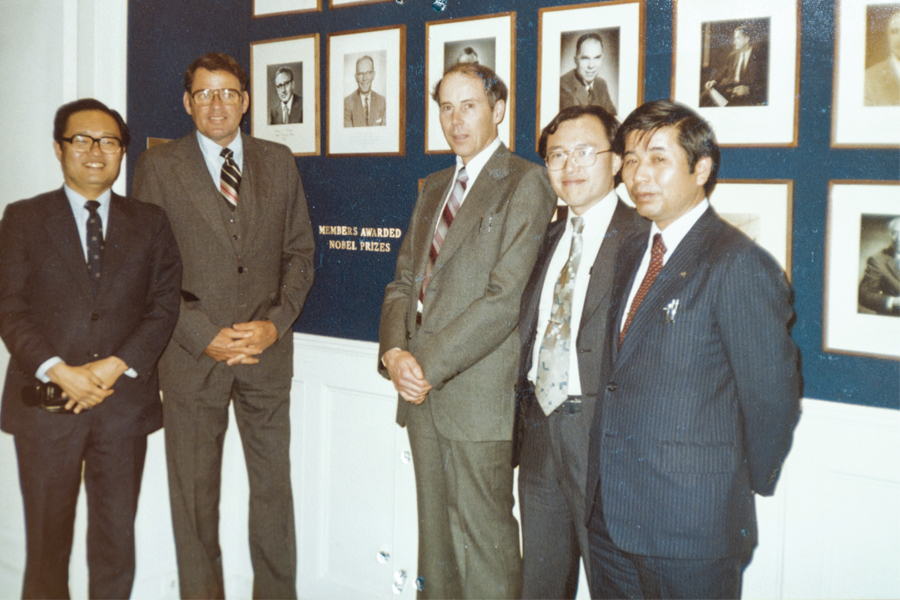
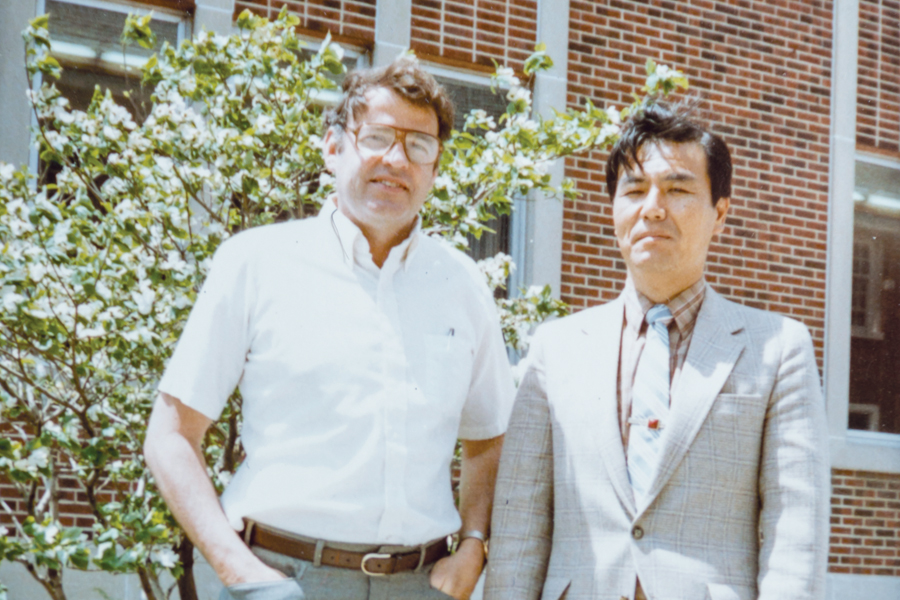
The “gold standard” for heat and mass transfer
DeWitt’s impact extended far beyond students in West Lafayette. In 1981, he and fellow Purdue Mechanical Engineering Professor Frank Incropera — currently the H. Clifford and Evelyn A. Brosey Professor Emeritus of Mechanical Engineering and Matthew H. McCloskey Dean Emeritus at Notre Dame — collaborated on a textbook.
“Fundamentals of Heat and Mass Transfer,” now in its eighth edition, became the de facto text for mechanical engineering undergraduates. Nearly 40 years after it was first published, the book is still used at universities worldwide, including Purdue.
“The number of mechanical engineers trained in heat transfer by this book is impossible to measure,” Bill says. “We’ve met countless people over the years from other universities who studied it and many who say it’s one of the few textbooks they kept.”
For instance, a friend of Karen and Bill, Jim Maveety, happened to study at the University of New Mexico under two of DeWitt’s former graduate students – who used DeWitt’s textbook. As a student, Maveety relied on the book heavily. And later, when teaching fluid-thermal courses at San Jose State University, Malveety made it the undergraduate heat transfer book — improving the quality of the university’s program.
In the introduction to the book’s sixth edition, published shortly after DeWitt’s death in 2005, Incropera shared his thoughts on his co-author’s legacy. They turned, not surprisingly, to family.
“Dave was an excellent and demanding teacher, a good researcher and a superb engineer,” Incropera wrote. “However, it is much more on a personal than a professional level that I have my fondest memories of this very special colleague. … Dave and I each have three daughters of comparable ages, and we would often share stories on the joys and challenges of nurturing them. It’s hard to think about Dave without reflecting on the love and pride he had for his daughters.”

Funding small steps and giant leaps in research
Today, those daughters are hopeful the Professor David P. DeWitt Heat Transfer Research Endowment will inspire new projects, large and small, in the scientific area that inspired their dad — and that affects nearly every industry.
“We want to help students and industry develop new ideas in a world that is constantly changing,” Debbie says. “Most adults fight change, but Dad embraced it. I know he would want Purdue to continue having an incredible heat transfer program, and this endowment will help shape the future.”
According to Anil Bajaj, the William E. and Florence E. Perry Head of Mechanical Engineering, research underway in the area of heat transfer covers everything from developing thermal therapies to treat disease to cooling the avionics of future spacecraft.
“This endowment provides opportunities for our faculty to take risks that could lead to great rewards,” Bajaj says. “We’re always looking at how we can pioneer new methods of energy conversion.”
Now, thanks to the efforts of the “Daughters Three,” DeWitt’s name will remain synonymous with research advances in the field he loved — although certainly not as much as he loved his daughters.
Banner Photo Caption
Amy DeWitt Bifano, Debbie DeWitt Foley and Karen DeWitt Frederick
Navigation
Fall 2018
Pinnacle of Excellence at Scale
Dean Mung Chiang: On a Global Listening Tour
Giant Leaps in Engineering, Discovery Park District
The College of Engineering Makes Its Mark
Neil Armstrong: Inspiration Cast in Bronze
Our Gratitude for a Stellar Year
Sections
2018 Distinguished Engineering Alumni/Alumnae
Investments in Infrastructure
Expansions and improvements to teaching and learning spaces, laboratories, offices
Elevating Student Experience
Scholarships, student opportunities, diversity programs, student clubs
Dedicated to the Cause
Fundraising, event hosting, activity planning, advisory boards, networking with alumni
Funding Research
Laboratory infrastructure and equipment, project startup funds, graduate student support
Flexible Gifts
Administrative funds, student travel and networking, unexpected opportunities
Fueling Faculty
Rewarding, retaining, recruiting faculty and promoting diversity in engineering
